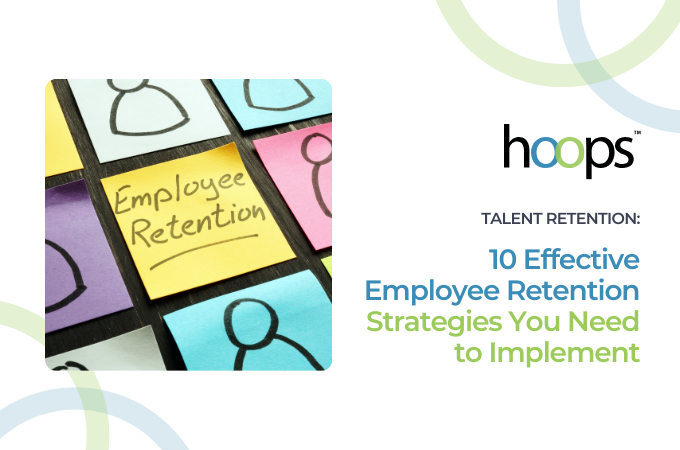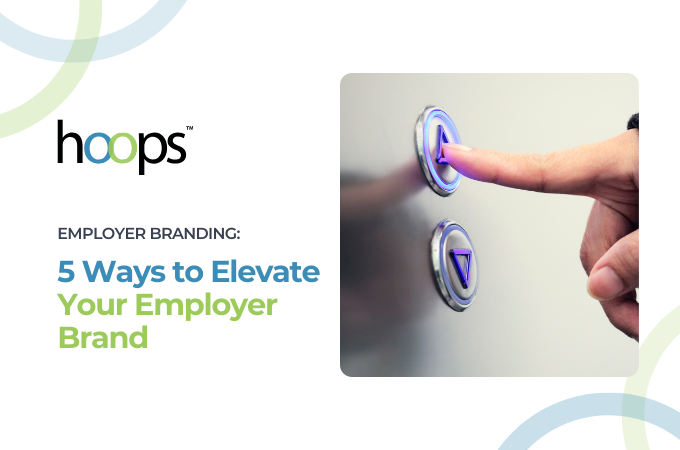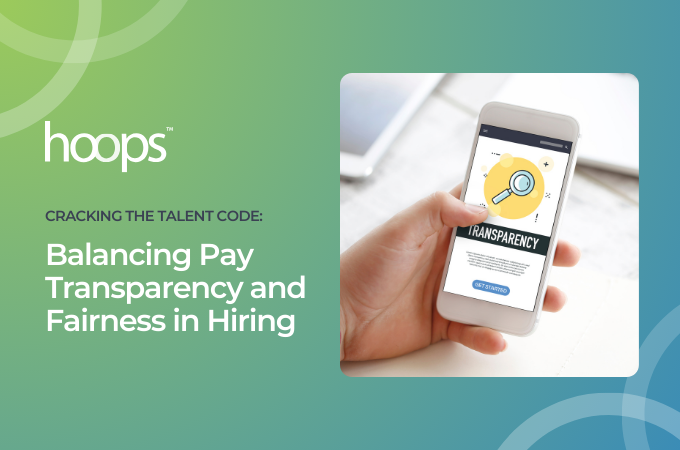In today’s fast-evolving business landscape, traditional hiring methods are giving way to a more data-driven approach. Too often, hiring managers make decisions based on gut instincts or personal preferences, like insisting on in-office roles simply because it’s what they prefer. However, the market is changing, and data reveals that clinging to outdated preferences can have serious drawbacks. According to recent LinkedIn research, requiring full-time in-office work can reduce a company’s talent pool by up to 20%. In a competitive job market, making data-driven decisions is crucial for attracting and retaining the best talent—and ultimately for future-proofing your workforce.
What Is Data-Driven Hiring?
Data-driven hiring uses data and analytics to guide recruitment decisions, helping companies align hiring practices with market trends, candidate expectations, and competitive benchmarks. A Market Insights Report, like those offered by Hoops, examines factors like salary trends, hiring difficulty, and competitor insights to provide a holistic view of the talent landscape. Armed with these insights, hiring managers can make informed decisions about compensation, role requirements, and work environments, creating a strategic advantage.
For example, a data-driven market analysis may reveal that top talent increasingly expects remote flexibility, competitive salaries, and growth opportunities. Adjusting your hiring strategy to reflect these insights enhances your appeal and helps you attract the right candidates.
Why Data-Driven Hiring Matters
- Increased Competitive Edge
Hiring with data-driven insights gives companies a competitive advantage. According to Deloitte’s 2024 Global Human Capital Trends report, organizations that integrate analytics into hiring practices are 23% more likely to attract top talent and 18% more likely to retain high performers. By understanding market trends and aligning hiring strategies accordingly, companies can better position themselves to meet industry standards and attract highly sought-after candidates. - Financial Efficiency and Cost Savings
One of the greatest impacts of data-driven hiring is financial efficiency. Many companies face costly turnover and failed hires due to mismatched expectations around salary, benefits, or job roles. Research from SHRM shows that companies using data-backed hiring practices save an average of $4,100 (or more) per hire by setting competitive compensation and role expectations upfront. Aligning salaries with market standards can reduce turnover costs by up to 30%, as fairly compensated employees are more likely to stay. - Enhanced Employee Satisfaction and Cultural Fit
A data-informed hiring approach not only attracts top talent but also ensures better alignment with company culture and employee expectations. Data-driven insights can reveal traits, skills, and values that correlate with high performance in your environment. According to a McKinsey study, companies prioritizing cultural alignment alongside market-based compensation report a 21% higher engagement rate, fostering a cohesive workplace culture. - Future-Proofing Your Workforce
Incorporating data into hiring is a proactive strategy for building a resilient and adaptable workforce. As roles and skills evolve rapidly, data-driven hiring enables companies to anticipate shifts in industry demands and adjust hiring criteria accordingly. This flexibility ensures your team is equipped with skills for current needs and future challenges.
Practical Ways to Implement Data-Driven Hiring
- Conduct Regular Market Analyses
Like those offered by Hoops, market insights reports provide a clear picture of industry standards, including salary ranges, skill demands, and candidate expectations. Staying informed allows companies to adapt to changing market dynamics, ensuring they remain competitive. - Utilize Predictive Analytics
Predictive analytics tools help anticipate hiring needs and identify traits that correlate with long-term success in specific roles. By analyzing traits of high-performing employees, you can refine hiring criteria to find candidates with similar attributes, boosting retention and productivity. - Balance Market Data with Internal Benchmarks
While market data offers invaluable insights, it’s essential to balance these with your organization’s unique needs. For example, while remote work might be trending, consider whether it aligns with your team’s collaborative style. Hoops’ Market Insights Reports help you find this balance, ensuring data-driven choices that support both your culture and operational needs. - Adopt a Flexible, Adaptive Hiring Mindset
The market—and candidates—will continue to evolve. Being open to adapting your hiring practices based on data ensures you stay relevant and competitive. From adjusting job requirements to offering hybrid work options, a data-driven, flexible hiring mindset positions your company as forward-thinking and employee-focused.
Why Data-Driven Hiring Is Essential for a Future-Ready Workforce
Leveraging data in hiring practices allows companies to build teams that are aligned with market expectations and future industry demands. A data-driven approach attracts top talent, ensures financial efficiency, and fosters a positive, adaptable culture.
Ready to make informed hiring decisions? Hoops’ Market Insights Reports provide the insights you need to hire smarter, stay competitive, and build a workforce prepared for the future.
Simplify hiring. Amplify growth. Visit us at hoopshr.com or call 877-262-7358 to learn more about our Market Insights Reports and how they can transform your hiring process.
#yourbesthire







